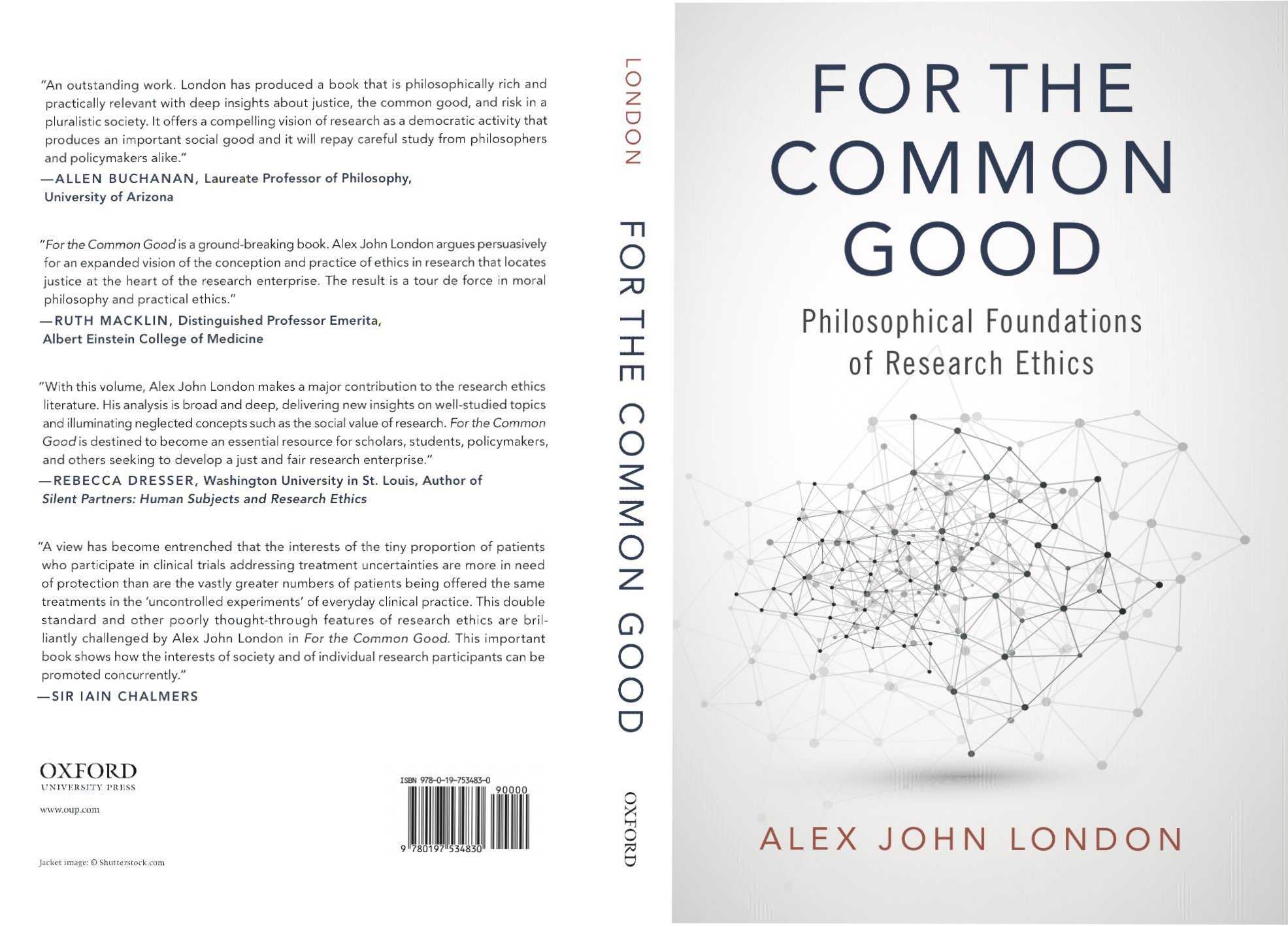
Alex John London
K&L Gates Professor of Ethics and Computational Technologies
- Baker Hall 150A
- 412.268.4938
Bio
Alex John London is the K&L Gates Professor of Ethics and Computational Technologies, co-lead of the K&L Gates Initiative in Ethics and Computational Technologies at Carnegie Mellon University, Director of the Center for Ethics and Policy at Carnegie Mellon University, and Chief Ethicist at the Block Center for Technology and Society at Carnegie Mellon University. An elected Fellow of the Hastings Center, Professor London’s work focuses on ethical and policy issues surrounding the development and deployment of novel technologies in medicine, biotechnology
Professor London is a member of the World Health Organization (WHO) Expert Group on Ethics and Governance of AI whose “Guidance on Large Multi-Modal Models” was published in 2024 and whose report, “Ethics and governance of artificial intelligence for health” was published in 2021. From 2022–2023 he was a member of the U.S. National Academy of Medicine Committee on Creating a Framework for Emerging Science, Technology, and Innovation in Health and Medicine, whose report "Toward Equitable Innovation in Health and Medicine: A Framework” was published in 2023. He is currently a co-leader of the ethics core for the NSF AI Institute for Collaborative Assistance and Responsive Interaction for Networked Groups (AI-CARING). In 2023 he was a conference program co-chair for the 6th AAAI / ACM Conference on Artificial Intelligence, Ethics and Society (AIES) and he has served on the program committee for the 2023 ACM Conference on Fairness, Accountability, and Transparency (FAccT) conference and AIES (in 2021 and 2022) and from 2017-2019 he was a judge for the IBM Watson AI X-Prize.
For more than a decade, Professor London has helped to shape key ethical guidelines for the oversight of research with human participants. He is currently a member of the U.S. National Science Advisory Board for Biosecurity (NSABB). From 2012-2016 he was a member of the Working Group on the Revision of CIOMS 2002 International Ethical Guidelines for Biomedical Research Involving Human Subjects. Prior to
Ethics and Artificial Intelligence (AI)
Professor London’s work in ethics and AI focuses on structural obstacles to safe and effective technologies and mechanisms for ensuring social trust, accountability and non-domination. This includes work on the nature of bias in algorithms and the disconnect between technical uses of this concept and ethical benchmarks. He has critiqued requirements of explainability and interpretability in the medical context and argued instead that accountability and freedom from arbitrary interference are better served by institutions and process for validating claims about what AI systems can do, clarifying the contexts under which those claims hold and when they do not. His work on ethical issues in the development and deployment of AI systems extends beyond medicine to include the regulation and evaluation of autonomous vehicles and ethical issues arising from real-time video surveillance of older adults.
Ethical Foundations of Research with Humans
Professor London has written widely on foundational issues in the ethics and design of research with human subjects. His work on clinical equipoise and the “integrative approach” to risk assessment provides clear operational content to the requirement that risks in research be reasonable and that research should be designed to produce valuable information. His work on the ethics of international research has helped to shape the debate about the requirements of justice, responsiveness to host community health needs, post-trial access, how to define the standard of care and how to use the concept of clinical equipoise in cross-national research.
Ethics of Regulation and Oversight
Professor London has articulated a non-paternalistic foundation for the ethical oversight of research involving human subjects. With colleagues, he has written a series of papers articulating a model for understanding clinical translation that identifies key benchmarks for assessing the ethical and scientific merits of proposals to reform research practice. This work emphasizes the role of incentives in aligning the parochial interests of stakeholders with the social mission of producing valid, reliable, and relevant scientific information.
Foundational Ethical Issues
In addition to his work on practical ethical and policy issues, Professor London maintains an active research program on foundational ethical and methodological issues in theoretical and practical ethics. He has explored the value of dignity in Kantian moral frameworks and the challenges this concept poses for rational decision making, in both group and individual choice settings. He has also written about methodological issues in practical ethics.
Honors and Awards
Professor London received the Elliott Dunlap Smith Award for Distinguished Teaching and Educational Service in the Dietrich College of Humanities and Social Sciences at Carnegie Mellon University. He received the Distinguished Service Award from the American Society of Bioethics and Humanities (ASBH) and a New Directions Fellowship from the Andrew W. Mellon Foundation.
Professor London is an affiliated faculty member of the Center for Bioethics and Health Law at the University of Pittsburgh and was previously a Visiting Scholar at the Harvard University Program in Ethics and Health. Before joining Carnegie Mellon in 2000, he was a post-doctoral fellow at the University of Minnesota's Center for Bioethics and he received his Ph.D. in Philosophy from the University of Virginia.
Multimedia
- Structural Challenges to the Translation of Artificial Intelligence in Health Care
- Epistemic Diversity, Ethics, and the Optimal Timing of Clinical Trials
- Justice and the Egalitarian Research Imperative, Oxford University 18 Feb 2022 (audio)
- RI Seminar: Alex John London : From Automation to Autonomy and the Ubiquity of Moral Decision Making
- Testimony before the 13th Meeting of the Presidential Commission for the Study of Bioethical Issues
- Science Podcast: DNA Identification After Conflict or Disaster
- NPR All Things Considered: "After Disasters, DNA Science is Helpful, But Often Too Pricey"
Selected Publications
The PDFs of these papers are intended for personal academic use only and should not be distributed in any way.
Books
London AJ (2021) For the Common Good: Philosophical Foundations of Research Ethics. Oxford University Press.
Available here in PDF as an open access title available under the terms of a CC BY-NC-ND 4.0 license.
Available in hard copy from Oxford University Press.
The foundations of research ethics are riven with fault lines emanating from a fear that if research is too closely connected to weighty social purposes an imperative to advance the common good through research will justify abrogating the rights and welfare of study participants. The result is an impoverished conception of the nature of research, an incomplete focus on actors who bear important moral responsibilities, and a system of ethics and oversight highly attuned to the dangers of research but largely silent about threats of ineffective, inefficient, and inequitable medical practices and health systems. In For the Common Good: Philosophical Foundations of Research Ethics, Alex John London defends a conception of the common good that grounds a moral imperative with two requirements. The first is to promote research that generates the information necessary to enable key social institutions to effectively, efficiently, and equitably safeguard the basic interests of individuals. The second is to ensure that research is organized as a voluntary scheme of social cooperation that respects its various contributors moral claims to be treated as free and equal. Connecting research to the goals of a just social order grounds a framework for assessing and managing research risk that reconciles these requirements and justifies key oversight practices in non-paternalistic terms. Reconceiving research ethics as resolving coordination problems and providing credible assurance that these requirements are being met expands the issues and actors that fall within the purview of the field and provides the foundation for a more unified and coherent approach to domestic and international research.
Textbook
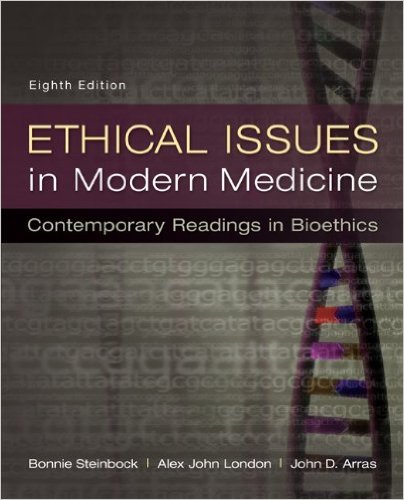 |
Ethical Issues In Modern Medicine, 8th edition. Bonnie Steinbock, Alex John London, John D. Arras. McGraw Hill, 2012. |
Ethics and AI
|
London, Alex John, Accountability for Responsible AI Practices: Ethical Responsibilities of Senior Leadership (February 07, 2024). Available at SSRN or http://dx.doi.org/10.2139/ssrn.4736880 |
|
|
London, Alex John and Heidari, Hoda. "Beneficent Intelligence: A Capability Approach to Modeling Benefit, Assistance, and Associated Moral Failures through AI Systems." arXiv preprint arXiv:2308.00868 (2023). |
|
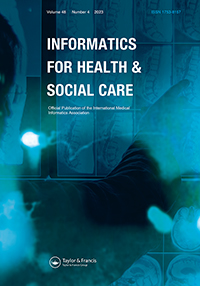 |
London, Alex John, Jason Karlawish, Emily A. Largent, Spencer Phillips Hey, and Ellen P. McCarthy. "Algorithmic identification of persons with dementia for research recruitment: ethical considerations." Informatics for Health and Social Care (2024): 1-14. [PDF] |
 |
McCradden, Melissa D; Joshi, Shalmali; Anderson, James A, London, Alex John. (2023) A normative framework for artificial intelligence as a sociotechnical system in healthcare. Patterns 4(11) November 10. https://doi.org/10.1016/j.patter.2023.100864 [PDF] |
 |
Kaushik, Divyansh, Zachary C. Lipton, and Alex John London. "Resolving the Human-subjects Status of Machine Learning's Crowdworkers: What ethical framework should govern the interaction of ML researchers and crowdworkers?." Queue 21, no. 6 (2023): 101-127. Original, longer version arXiv preprint arXiv:2206.04039 (2022). |
|
Alex John London, Yosef S. Razin, Jason Borenstein, Motahhare Eslami, Russell Perkins, and Paul Robinette. Ethical Issues in Near-Future Socially Supportive Smart Assistants for Older Adults. IEEE Transactions on Technology and Society .Print ISSN: 2637-6415 Online ISSN: 2637-6415 DOI: 10.1109/TTS.2023.3237124 [PDF] |
|
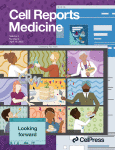 |
Alex John London (2022). Artificial Intelligence in Medicine: Overcoming or Recapitulating Structural Challenges to Improving Patient Care. Cell Reports Medicine online first 4/27/22 [PDF] (https://doi.org/10.1016/j.xcrm.2022.10062) |
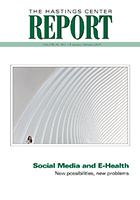 |
Alex John London (2019). Artificial Intelligence and Black‐Box Medical Decisions: Accuracy versus Explainability. The Hastings Center Report 49(1):15-21 [PDF] |
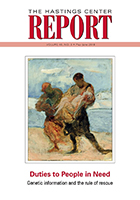 |
Alex John London (2018). Groundhog Day for Medical Artificial Intelligence. The Hastings Center Report 48(3) [PDF] |
 |
Alex John London & David Danks, (2018). Regulating autonomous vehicles: A policy proposal. In Proceedings of the 2018 AAAI/ACM Conference on Artificial Intelligence, Ethics, and Society p. 216-221. [PDF] |
| David Danks & Alex John London (2017). Algorithmic Bias in Autonomous Systems. Proceedings of the 26th International Joint Conference on Artificial Intelligence (IJCAI 2017). (4691-4697) | |
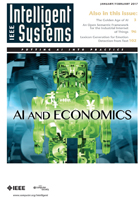 |
David Danks and Alex John London (2017). Regulating Autonomous Systems: Beyond Standards. IEEE Intelligent Systems. |
 |
Hoss F, London AJ. (2015) Assessing the Moral Coherence and Moral Robustness of Social Systems: Proof of Concept for a Graphical Models Approach. Science and Engineering Ethics (online first 21 December) DOI 10.1007/s11948-015-9743-0. |
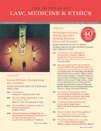 |
Bharucha, A. J., London, A. J., Barnard, D., Wactlar, H., Dew, M. A., & Reynolds III, C. F. (2006). Ethical considerations in the conduct of electronic surveillance research. The Journal of Law, Medicine & Ethics, 34(3), 611-619. [PDF] |
Ethics of Research in Crisis Situations
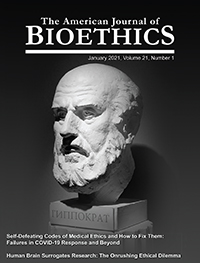 |
London, A.J. (2021). Self-Defeating Codes of Medical Ethics and How to Fix Them: Failures in COVID-19 Response and Beyond. American Journal of Bioethics 21(1) 4-13. [PDF] |
|
London, A.J. and Kimmelman J. (2020) Against Pandemic Research Exceptionalism. Science. 23 Apr 2020: eabc1731 DOI: 10.1126/science.abc1731 [PDF]. |
|
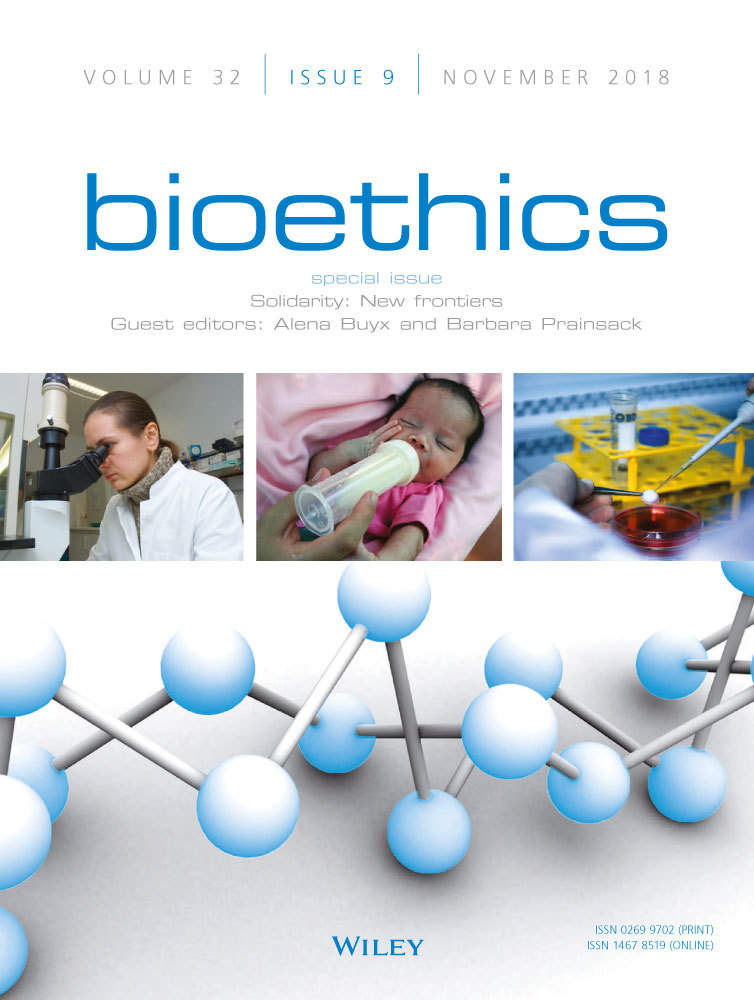 |
London, A.J. (2018). Social value, clinical equipoise, and research in a public health emergency. Bioethics. https://onlinelibrary.wiley.com/doi/full/10.1111/bioe.12467 [PDF] |
| London AJ, Omotade OO, Mello MM, Keusch GT (2018) Ethics of randomized trials in a public health emergency. PLoS Negl Trop Dis 12(5): e0006313. https://doi.org/10.1371/journal.pntd.0006313 | |
 |
London, Alex John (2009) "Clinical Research in a Public Health Crisis: The Integrative Approach to Managing Uncertainty and Mitigating Conflict," Seton Hall Law Review: Vol. 39: Iss. 4, Article 4. Available at: http://scholarship.shu.edu/shlr/vol39/iss4/4 |
| Threats to the Common Good: Biochemical Weapons and Human Subjects Research. Alex John London (2003). The Hastings Center Report 33(5): 17-25. [PDF] |
|
 |
DNA Identification After Conflict or Disaster. Alex John London, Lisa S. Parker, Jay D. Aronson. Science 13 September 2013: Vol. 341 no. 6151 pp. 1178-1179 DOI: 10.1126/science.1238085 [Summary] [Reprint] [Full Text] [Podcast] |
Formal Methods in Ethics
| Adam Bjorndahl, Alex John London, Kevin J.S. Zollman (2017) Kantian Decision Making Under Uncertainty: Dignity, Price, and Consistency. The Philosopher’s Imprint. APRIL 2017, VOLUME 17, NO. 7, PP. 1-22 | |
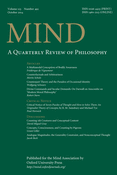 |
Athanasiou E, London AJ, Zollman KJS. (2015) "Dignity and the Value of Rejecting Profitable but Insulting Offers." Mind. [PDF] |
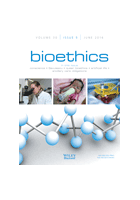 |
Kestigian, A. and London, A. J. (2016), Adversaries at the Bedside: Advance Care Plans and Future Welfare. Bioethics. |
| London AJ and Zollman K.Z. (2010). Research at the Auction Block: Problems for the Fair Benefits Approach to International Research. The Hastings Center Report 40(4):34-45. [PDF] Appendices |
Ethical and Scientific Issues in Research Regulation and Oversight
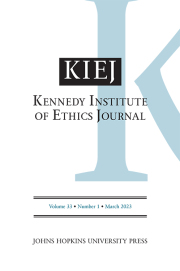 |
London AJ, Kane PB, Kimmelman J. (2023) Varieties of Community Uncertainty and Clinical Equipoise. Kennedy Institute of Ethics Kennedy Institute of Ethics Journal Vol. 33, No. 1, 1–19. [PDF] |
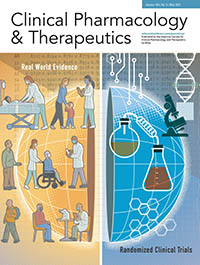 |
Franklin, J.M., Platt, R., Dreyer, N.A., London, A.J., Simon, G.E., Watanabe, J.H., Horberg, M., Hernandez, A. and Califf, R.M. (2021), When Can Nonrandomized Studies Support Valid Inference Regarding Effectiveness or Safety of New Medical Treatments?. Clinical Pharmacology & Therapeutics. |
| London, A.J. (2020). Equipoise: Integrating Social Value and Equal Respect in Research With Humans. in Ana S. Iltis and Douglas MacKay, Eds. The Oxford Handbook of Research Ethics. New York: Oxford University Press. [PDF] | |
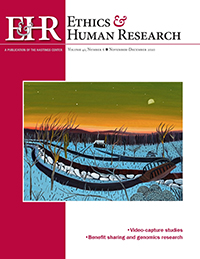 |
London AJ, Taljaard M, Weijer C. (2020) Loopholes in the research ethics system? Informed consent waivers in cluster randomized trials with individual-level interventions. Ethics & Human Research 42(6) 21-28. [PDF] |
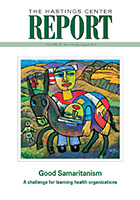 |
London AJ and Kimmelman J. (2019) The Ethics and Science of Human Research is Incomplete Without Consideration of Clinical Trial Portfolios. Hastings Center Report 49(4) 31-41. DOI: 10.1002/hast.1034 (PDF) |
 |
London AJ. (2019) Freedom from Subjection to the Will of Others: Study Payments, Labor, and Moral Equality. American Journal of Bioethics 19(9), 32-34. (PDF) |
| Hay S, London AJ, Weijer C. 2017. Is the concept of clinical equipoise still relevant to research? Yes. BMJ 2017;359:j5787 |
|
| London AJ. (2017). Learning Health Systems, Clinical Equipoise and the Ethics of Response Adaptive Randomization. Journal of Medical Ethics. |
|
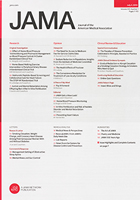 |
London AJ (2017) Equipoise in Research: Integrating Ethics and Science in Human Research. JAMA. 2017;317(5):525-526. |
| Jonathan Kimmelman and Alex John London, “The Structure of Clinical Translation: Efficiency, Information, and Ethics,” Hastings Center Report 45 (2015): 1–7. DOI: 10.1002/hast.433. [PDF] [Abstract] |
|
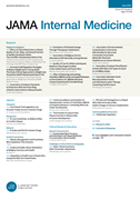 |
Alex John London and Jonathan Kimmelman. (2016) Accelerated Drug Approval and Health Inequality. JAMA Intern Med. Published online June 13, 2016. |
| London AJ and Kimmelman J. (2015) Why Clinical Translation Cannot Succeed Without Failing. eLife 2015;4:e12844. DOI: 10.7554/eLife.12844. | |
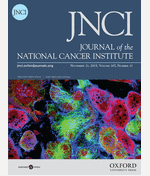 |
Benjamin |
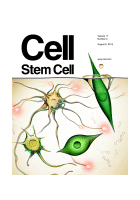 |
Danielle Marie Wenner, Jonathan Kimmelman, and Alex John London. (2015). Patient-Funded Trials: Opportunity or Liability? Cell Stem Cell |
 |
London AJ. (2013) Justification, Coherence [PDF] |
 |
London AJ. 2012. A Non-Paternalistic Model of Research Ethics and Oversight [Link] |
 |
Rethinking Research Ethics: The Case of Postmarketing Trials. Alex John London, Jonathan Kimmelman, Benjamin Carlisle. Science 4 May 2012: Vol. 336 no. 6081 pp. 544-545 DOI: 10.1126/science.1216086 [PDF] |
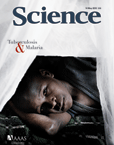 |
Beyond Access vs. Protection in Trials of Innovative Therapies. Alex John London, Jonathan Kimmelman, and Marina Elena Emborg Science 14 May 2010: 829-830. [PDF] |
 |
London AJ, Borasky DA Jr, Bhan A, for the Ethics Working Group of the HIV Prevention Trials Network (2012) Improving Ethical Review of Research Involving Incentives for Health Promotion. PLoS Med 9(3): e1001193. |
 |
Kimmelman J, London AJ (2011) Predicting Harms and Benefits in Translational Trials: Ethics, Evidence, and Uncertainty. PLoS Med 8(3): e1001010. |
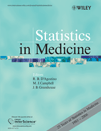 |
Reasonable Risks In Clinical Research: A Critique and a Proposal for the Integrative Approach. Alex John London (2006) Statistics In Medicine 25:2869-2885. DOI: 10.1002/sim.2634. [PDF of [PDF of unpaginated pre-print] |
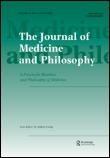 |
Two Dogmas of Research Ethics and the Integrative Approach to Human-Subjects Research. Alex John London (2007) Journal of Medicine and Philosophy 32 (2): 99-116. DOI:10.1080/03605310701255727 [PDF] |
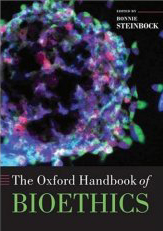 |
Clinical Equipoise: Foundational Requirement or Fundamental Error? Alex John London (2007) in Bonnie Steinbock (ed.) The Oxford Handbook of Bioethics. New York: Oxford University Press: 571-596. [PDF] |
 |
Equipoise and the Criteria for Reasonable Action. Evans EL & London AJ. (2006) Journal of Law Medicine and Ethics 34 (2): 441-450. [PDF] |
| The Moral Foundations of Equipoise and Its Role in International Research. Alex John London (2006) The American Journal of Bioethics 6(4):48-50. [PDF] |
|
| Threats to the Common Good: Biochemical Weapons and Human Subjects Research. Alex John London (2003). The Hastings Center Report 33(5): 17-25. [PDF] |
Ethics of International Research
| London AJ and Zollman K.Z. (2010). Research at the Auction Block: Problems for the Fair Benefits Approach to International Research. The Hastings Center Report 40(4):34-45. [PDF] Appendices |
|
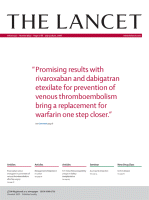 |
London AJ and Kimmelman J. (2008). Justice in Translation: From Bench to Bedside in the Developing World. The Lancet 372 (9632): 82-85. [PDF] |
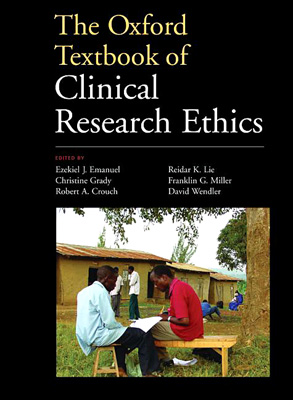 |
London AJ. (2008). Responsiveness to Host Community Health Needs. in Ezekiel J. Emanuel, Christine Grady, Robert Crouch, Reidar Lie, Franklin Miller, and David Wendler eds., The Oxford Textbook of Clinical Research Ethics. (New York: Oxford University Press) pp. 737-744. [PDF] |
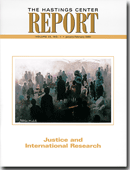 |
London AJ. (2005). Justice and the Human Development Approach to International Research. The Hastings Center Report 35(1): 24-37. [PDF] |
 |
London AJ. (2001). "Equipoise and International Human-Subjects Research." Bioethics 15(4) 4: 312-332. [PDF] |
 |
London AJ. (2000). "The Ambiguity and the Exigency: Clarifying 'Standard of Care' Arguments in International Research."Journal of Medicine and Philosophy 25(4): 379-397. [PDF] |
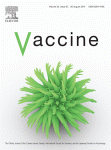 |
"Placebo use in vaccine trials: Recommendations of a WHO expert panel” (2014) Annette Rid, Abha Saxena, |
Ethical Issues in Innovation: Surgery and Movement Disorders
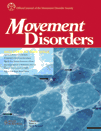 |
Kimmelman J, London AJ, Ravina B, Ramsay T, Bernstein M, Fine A, Stahnisch F, Emborg ME. (2009). "Launching Invasive, First-in-Human Trials Against Parkinson’s Disease: Ethical Considerations". Movement Disorders. [Abstract] |
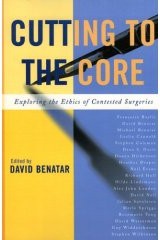 |
London AJ. (2006). "Sham Surgery and Reasonable Risk" in David Benatar ed. Cutting to the Core: Exploring the Ethics of Contested Surgeries. New York: Rowman & Littlefield Publishers, Inc. 211-228. [PDF] |
 |
London AJ. (2006).“Cutting Surgical Practice at the Joints: Individuating and Assessing Surgical Procedures.” in Angelique M. [PDF] |
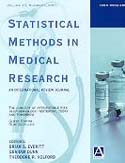 |
London AJ, Kadane JB. (2002). "Placebos That Harm: Sham Surgery Controls in Clinical Trials." Statistical Methods in Medical Research 11(5): 413-428. [PDF] (This paper was a finalist for the 2002 Mark S. Ehrenreich Prize in health care ethics.) |
| London AJ, Kadane JB (2003). “Sham Surgery and Genuine Standards of Care: Can the Two be Reconciled?” The American Journal of Bioethics 3 (4): 61-64. [PDF] from Project Muse |
|
| London AJ. (2001). "The Maltese Conjoined Twins: Two Views of Their Separation." The Hastings Center Report 31; 1: 48-52. [PDF] |
Ethics and Advertising Health Services
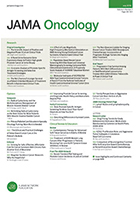 |
London AJ, Kimmelman J. (2018). Clinical Trials in Medical Center Advertising. JAMA Oncology Published Online: April 5, DOI: 10.1001/jamaoncol.2018.0181. |
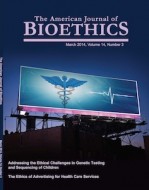 |
Schenker Y, Arnold R, London AJ. 2014. "The Ethics of Advertising for Healthcare Services." American Journal of Bioethics 14 (3): 34-43. (Link) |
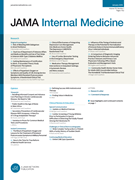 |
Schenker Y, London AJ. Risks of Imbalanced Information on US Hospital Websites. JAMA Intern Med. Published online January 12, 2015. |
Methodology and Moral Psychology in Theoretical and Applied Ethics
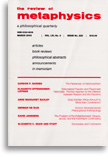 |
London AJ. (2001). "Moral Knowledge and the Acquisition of Virtue in Aristotle's Nicomachean and Eudemian Ethics." The Review of Metaphysics 54(3): 500-531. [PDF] |
 |
London AJ. (2001). "The Independence of Practical Ethics." Theoretical Medicine and Bioethics 22(2): 87-105. [PDF] |
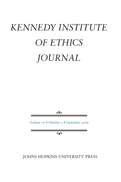 |
London AJ. (2000). "Amenable to Reason: Aristotle's Rhetoric and the Moral Psychology of Practical Ethics." Kennedy Institute of Ethics Journal 10(4): 287-305. [PDF] |
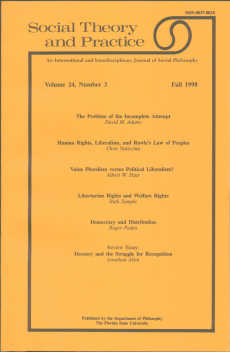 |
London AJ. (1998). "Virtue and Consequences: Hobbes on the Value of the Moral Virtues." Social Theory and Practice 24; 1:1-23. [PDF] |
Selected Past Lectures
International Invited Talks
-
“Ethical Issues in Next-Generation AI Assistive Systems: Dependence, Alignment, and Navigating the Moral World. Oxford Institute for Ethics in AI 5/3/2023.
-
“Justice and the Egalitarian Research Imperative I” Oxford University Ethox Center 1/26/22.
-
“Kantian Decision Making Under Uncertainty,” Kantian Rationality Lab, Immanuel Kant Baltic Federal University in Kaliningrad, 6/24/21.
-
“Ethics in Medical AI: Accountability Without Explainability?” closing Keynote at Lorentz Center conference on Explainable Medical AI: Ethics, Epistemology and Formal Methods (via Zoom) 4/12/21.
-
“Self-Defeating Codes of Medical Ethics and How to Fix Them: Failures in COVID-19 Response and Beyond. Welcome Center for Ethics and Humanities/ ETHOX Center, Oxford University (via Zoom) 10/22/20.
-
“The Importance of Research Quality in a Pandemic” National Institutes of Health and India’s National Biopharma Mission Webinar on Scientific and Ethical Standards of Clinical Trials in Public Health Emergencies. 9/24/20.
-
“Against Pandemic Research Exceptionalism” Public Health Emergency Preparedness and Response Ethics Network lead by the World Health Organization, via Zoom 8/10/20.
-
“Explainability in Medical AI” presentation to the World Health Organization Expert Group on Ethics and Governance of AI, 10/3/19 (delivered remotely).
-
“Regulating Autonomous Vehicles: From Fixed Standards to Dynamic Oversight” Kyushu University, Japan 2/1/19.
-
“Artificial Intelligence in Medicine: An Introduction to Ethical Issues” University of Tokyo, Center for Bioethics and Law 1/29/19.
- “Coordination of Clinical Research During an Outbreak” - Workshop on Sustainable Clinical Research Capacity: Architecture, Governance, and Indicators. Sponsored by the National Institute of Allergy and Infectious Disease, World Bank, and the World Health Organization. Geneva, Switzerland 3/12/18.
- “Ethics & Efficacy Trials of Vaccines When Effective Vaccines Already Exist” - Welcome Trust Expert Meeting on Evaluating New Generation Vaccines, London, Feb 8, 2018.
- “Social Value, Reasonable Risk, and Research in a Public Health Crisis” Matariki 2017 Research Ethics Workshop, England.
- “Equipoise and Vaccine Research in an Epidemic Context” “Ethical Design of Vaccine Trials in Emerging Infections Workshop” Oxford University 7/17/17.
- “Ethical and Methodological Considerations for Pharmacovigilance with Accelerated Release of Medicines” Opening Keynote, Uppsala Forum of the Uppsala Monitoring Center, 30 June, 2016.
- “Beyond Protection: The Integrity of Science as a Fundamental Ethical Concern” Opening Keynote Plenary, 15th Annual Meeting of the International Society of Pharmacovigilance. Prague, Czech Republic, Oct 28, 2015.
- “Research and Global Health: Some Considerations of Justice” Annual Ethics Oration for the International Continence Society, Rio de Janeiro Brazil, 10/22/14.
- “Mitigating Social Tension in Pandemic Research” and “Comments on the 2009 WHO Report on Research Ethics in International Epidemic Response” presented at Regulating Experimental Medicine During a Pandemic, London England 6/6- 7/14.
- “Benefit Sharing in the Context of Biomedical Research: The Human Development Model” CIOMS International Workshop on Considerations on Benefit Sharing, Geneva, Switzerland Nov. 20, 2013.
- “Integrity & Social Trust: Securing the Future of Identification of the Missing” The Missing: An Agenda for the Future, The Hague, Netherlands Oct. 31, 2013.
- “Expert Consultation on Use of Placebo in Vaccine Trials: Pneumococcal Vaccine Case Study” World Health Organization (WHO) Expert Consultation on Use of Placebo in Vaccine Trials, Annecy France, Jan 17, 2013.
- “Post-Trial Access to Investigational Interventions in International Settings,” The World Medical Association Expert Conference on the Revision of the Declaration of Helsinki, Cape Town, South Africa, Dec 6, 2012.
- “Improving the Ethical Assessment of Incentives in Research,” and “Beyond Risk and Consent: Safeguarding the Integrity of Research as a Unique Social Good” for the training program in Buenos Aires, Argentina of the Fogarty International Center of the National Institutes of Health 5/22-24/2012.
- “Responsiveness, Access, and Partnerships for Inquiry,” Conference on Post Trial Access to Trial Drugs: Legal, Ethical, and Practical Issues, Broucher Foundation, Geneva Switzerland, 12/15/2011.
- “Ethical Issues and Institutions of DNA Identification,” International Commission on Missing Persons (ICMP), Steering Committee on Forensic Sciences Programs, Sarajevo, Bosnia Herzegovina 10/25/11.
- “The Integrative Approach to Clinical Trials of Charged Particle Radiotherapy” Institute for Science and Ethics and the Particle Therapy Cancer Research Institute, Oxford University 7/24/11.
- “Fair Benefits and Placebo Controls” The World Medical Association Expert Conference on The Ethics of Placebo Controls in Clinical Trials, Sao Paulo, Brazil, 7/15/2011.
- “Research vs. Surveillance and Other Public Health Practices: Definitions and Respective Ethical and Procedural Implications.” World Health Organization, Geneva Switzerland, 6/10/09.
- “Reasonable Risk in Clinical Research” and “The Responsiveness to Host Community Health Needs Requirement” for the training program in Buenos Aires, Argentina of the Fogarty International Center of the National Institutes of Health 11/7-8/06.
Invited Plenary Talks
- “Automating Medicine” Presentation for Presidential Panel at the Philosophy of Science Association Annual Meting 11/10/22.
- “Reconceptualizing the Role of the IRB: A Nonpaternalistic Research Ethics” WCB IRB Fall Training, Seattle WA 10/14/22.
- “Uncertainty and the Ethics of Artificial Intelligence in Health Care” Opening Keynote for Ethics of AI in Health Care Conference, Milwaukee WI, 9/22/22.
-
“Ethics of AI in Medicine” Plenary panel presentation, American Heart Association Research Leaders Academy Workshops 9/20/19.
-
“Bioethics Turns 50” Plenary session at the PRIM&R Advancing Ethical Research Conference, Nov. 18, 2019.
-
“Trauma and the Tree of Life Tragedy: Finding a Path Forward” Moderator, Opening Plenary Session, American Society for Bioethics and Humanities, Oct 24, 2019.
-
“Avoiding Human Bias in AI Systems” ReWork, AI for Good Summit, San Francisco, CA, 6/21/19.
-
“Ethical decision making in computational systems: mechanisms for ensuring social trust,” Keynote for the National Academy of Medicine meeting on Algorithms, Air Pollution, and Adverse Outcome Pathways: Leveraging Artificial Intelligence and Machine Learning to Advanced Environmental Health Research and Decisions. June 6-7, 2019.
-
“Innovation, Rigor, and the Best Interests of Study Participants: Can We Have it All?” Center for Clinical & Translational Science & Training at the University of Cincinnati conference on Pushing the Boundaries: Scientific Innovation and Biomedical Ethics, Cincinnati April 12, 2019.
-
“Artificial Intelligence in Medicine: Does Accountability Require Explainability?”, “When Machines Make Life and Death Decisions” and “Ethical and Scientific Issues Developing AI in Medicine: Parallels to Drugs Development” The John & Marsha Ryan Bioethicist-in-Residence, Southern Illinois University School of Law, March 20-22, 2019.
- Artificial Intelligence & Genuine Medical Ethics: Incorporating AI into Responsible Medical Practice. The 2018 Bruce E. Siegel Memorial Lecture, Columbus, Ohio, 11/13/18.
- Ethical and Scientific Issues in Developing Deep Learning Systems in Medicine: More Like Drugs Than You Might Think. 13th Annual FDANews FDA Inspections Summit, 10/25/18.
- Artificial Intelligence and Ethics. BNY Mellon IMPACT kick-off to the 44th Annual National Society of Black Engineers Convention. 3/20/18.
- Closing Keynote. Ethical Issues in International Research: Benchmarks for Fairness. Inaugural Carol Carfang Nursing & Healthcare Ethics Conference at the Hilton Clearwater Beach Hotel in Clearwater, Florida. 3/2/18.
- Closing Plenary, The Nuremberg Code After 70 Years: Foundational or Forgotten? PRIM&R 2017 Advancing Ethical Research Conference, San Antonio, TX 11/8/17.
- “Ethics and AI” Vision Monday, New York City, 3/29/17.
- “The ‘Standard of Prevention’ in HIV Prevention Research” plenary panel presentation at the HIV Vaccine Trials Network Annual Meeting, Washington D.C. 5/6/15.
- “IRBs, What Are They Good For? Absolutely Nothing? Individual Integrity vs. Institutional Design” Lehman Lecture in Medical Ethics, Allegheny College March 12, 2014.
- “Ethical Challenges in Research Involving Financial Incentives In Resource Scarce Environments,” Invited Plenary, U.S. Government Evidence Summit: Enhancing Provision and Use of Maternal Health Services through Financial Incentives, Washington, DC, 4/25/12.
- “Ethical Issues in Behavioral Economics and Combination Prevention” Invited Plenary, HIV Prevention Trials Network Annual Meeting, Washington DC. 6/6/11.
- “Is Research Morally Special: Justice, Respect, and Reasonable Regulation.” Invited Plenary, Public Responsibility In Medicine and Research (PRIMR) annual meeting, 11/14/09. (I gave 3 additional talks at this meeting as well).
